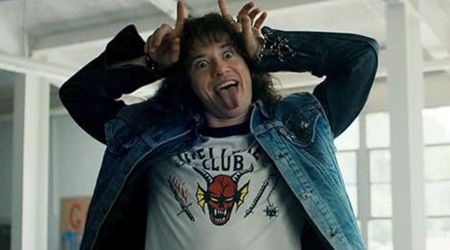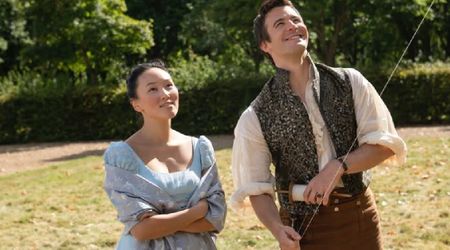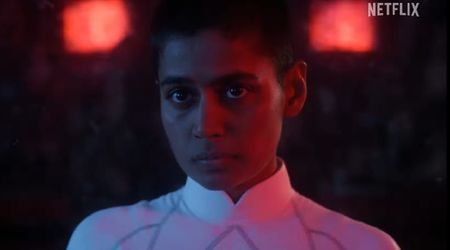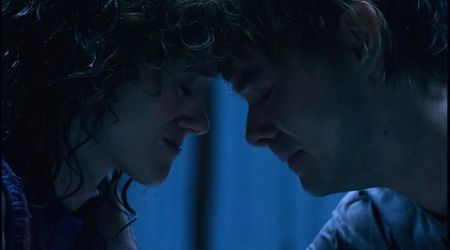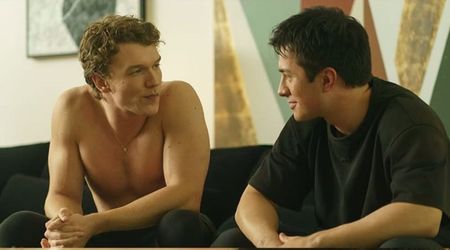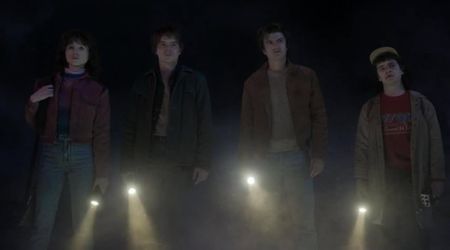EXCLUSIVE | Kristen Lappas on the story of tragedy, struggle and triumph behind ESPN's 'Blackfeet Boxing'

ESPN had scheduled an interview with Kristen Lappas ahead of the release of her latest documentary, 'Blackfeet Boxing: Not Invisible', on Tuesday and three minutes into the interview, she apologizes for the long answers. However, what's fascinating is the way Lappas vividly recounted the tale that conjured for the interviewer a perfect picture as she outlined each detail meticulously.
"It's an interesting story," she said when asked about how the idea of the documentary came about. And at that time, Lappas was working on another story for ESPN. This one was a female-driven story about a Nepali female golfer trying to become the first professional golfer in her country, and as a producer, she says she gravitates towards stories empowering young women.
"I was on a plane and I happened to be watching the film, 'Wind River', which is fictionalized, but it's about a girl on a reservation in Wyoming who disappears and is murdered. And the film kind of ends with a really haunting graphics. It comes up at the very end and says missing person statistics are compiled for every other demographic except for Native American women. No one knows how many are missing. And just watching that took my breath away" she explained.

This led Lappas to look into the Missing and Murdered Indigenous Women USA (MMIW) and the plight of these Native American Women the following day. The research led her to a Billings Gazette photo essay about the Browning Blackfeet reservation people's reaction to a missing girl called Ashley Loring HeavyRunner. In that essay was also a picture of two girls sparring, an image she'd never forget. "It was a silhouette and beautifully shot," Lappas recollected.
"The caption read Frank Kipp teaches self-defense tactics at the Blackfeet Nation Boxing Club gym. And it was like, here's a situation where girls are kind of taking matters into their own hands. And I really wanted to learn more about what they are doing in the gym and the man who's behind helping them do that." And as the saying goes, the rest was history.
Frank and Donna Kipp
It was September 2018. Two flights and a three-hour drive from Manhattan to the northernmost point of Montana saw Lappas meet Frank at his gym. She vividly recalls walking into a warehouse-converted setup. Dim lights and no heat were her first observations. The lights and heat would come on only when the kids trained. The bills are hard to pay for. Lappas sat down for a chat and it wasn't in front of the camera. There's that level of respect Lappas gives Donna Kipp, Frank's daughter.
Donna was best described as "Mature and wise beyond her years for a 17-year-old." And the teen was already an advocate of MMIW. "She told me how she fights for that every time she gets in the ring, she writes MMIW on her hand grafts. Ashley's parents had really impacted all of the girls on the reservation," Lappas said. The interesting and also saddening part at the same time is that the reservation has 16,000 people living there as a tight-knit community. Meaning, Ashley's disappearance was personal and had a massive effect on the people.
"Donna told me about the work that she had been doing to facilitate MMIW, in the form of awareness days and tribal dances that they did in honor of Ashley at the halftime at the basketball games. I was just struck by her maturity and grace. The fact that she was not only like a badass fighter, but she was also like doing a lot of amazing work like social justice, which was so impressive to me."
"Frank was charming," Lappas exclaimed. "From the minute you first started talking, you know he cares about the kids in that gym, especially the young girls. To hear his voice was almost quivering when he was telling me about the reason he started the gym." Frank served as a probation officer prior to setting up the gym. And he has his own reasons for doing so. A little girl was raped, lost and the authorities knew the man responsible. But nothing ever happened.

"He literally told me he was like, I have PTSD from my days as a probation officer and I ended up quitting cause I just couldn't handle it anymore," the director did. By then, one thing was clear. This was a story to be told.
One of the scenes in the documentary was Donna going down in the ring after a knee injury. For Lappas, it was all about following the journey of these women and capturing as much as she could. At that time, Donna had medals at the 2015 Junior Olympics. She had a bronze and it was her last year as a senior in high school. This meant she had only one shot to get to the nationals. Lappas found herself rooting for Donna and remembers "being crushed" when Donna injured herself during the bout.
And for someone who makes sports documentaries, she could feel the pain. "I've kind of learned this over time because you set out and obviously like your dream is to see and capture somebody, achieving their dreams through sport. But. I feel like sometimes losing or getting injured is more relatable than winning," she explained.
"For the audience, everyone knows what that feels like to like get knocked down like that, you know, like in life in general. So when it first happened, I was like, "Oh my gosh, this is just the end of the documentary. Are we even going to do this anymore? But then I was like this is real life. This is a small thing compared to what these girls are fighting on the reservation every single day."
The Ashley Loring disappearance

"Honestly, it [Ashley's disappearance] was the reason why we pitched the story to begin with, because it was just like the connection between the girls at the gym and why they had joined, and who they were fighting for," Lappas remarked. One of the storylines in the documentary was about Mamie Kennedy, a promising 14-year-old, who was pushed by her grandmother to learn self-defense. Ashley's story had that sort of effect on these women and children.
"It wasn't just like they were sent the growth of Jim, we're saying we're fighting for all missing and murdered indigenous women. It was like, no, we're, we're fighting for Ashley. Every single girl that Jim had some sort of a connection to her so it was almost like a natural segway."
The 30-minute runtime
For those who thought this was a conventional and typical ESPN full-length feature spanning two hours, it's actually just 30 minutes. The only question was, "What would you pick to be left in after the extensive research?" Turns out, Lappas had the same conundrum. "I think it could have been a feature-length doc. We could have gone a lot of different directions," she said. "30 for 30, in general, is more like retrospective films, about big-name athletes. And so this didn't really fit in that mold."

"Something that 30 to 30 in ESPN films really pushes us to tell sports stories that kind of take on social issues in their 30 for 30 shorts," Lappas said. They had footage after filming for a year and there were fascinating stories to be told. "My task, in the beginning, was to do a 30-minute film. So it was kind of always the lens that I was looking at the story through. I thought it was going to be 90 minutes and then they told me, Oh no, we have to do this in 30. And then it was like, well, how the heck do we fit this in?"
Lappas had identified Mamie and Donna as the two characters early on and 'Blackfeet Boxing' does provide a fair backdrop of the duo. "I feel like we did like skim the surface on so many important things that we could have gone into so much more detail on just including why this happens on reservations," felt Lappas.
Coronavirus, George Floyd, and the real-time connect

The timing of the release couldn't have come at a better time for Lappas. When the film was on the edit desk, the world hadn't yet been jolted by the Coronavirus pandemic, George Floyd's death hadn't rocked the nation. "I do think that the timing of our film couldn't be better because it just shows our country going through a huge awakening right now. And for the first time in a long time, people are actually listening," Lappas said.
"This gym just shares the story of another group of young women whose voices have been stifled for so long. And I hope that in seeing what these girls are doing at the gym, people learn about this really important issue and are inspired to act, try and get their local officials to try to promote change in some way. I think people are looking to do that right now."
The final minutes of our interview focused on how this documentary wasn't about the big names in sports. "It's not like Michael Jordan," she laughed. "There are stories that deserve to be told as well. They might not be as well known, but they're equally as important," Lappas stressed. She has now transitioned to a new role at ESPN as the producer for '30 for 30' and is currently working on an NFL documentary set to hit next year in February. And as we wait for that release, the audience can tune into a story of survival in 'Blackfeet Boxing: Not Invisible'.

